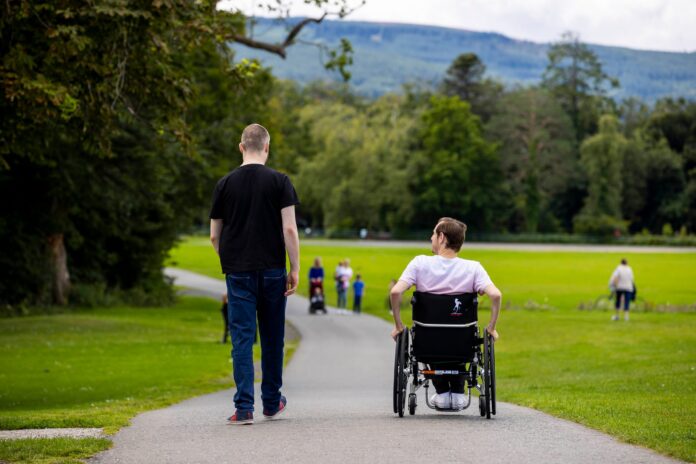
SPINAL Injuries Ireland (SII) is hosting a meeting in Limerick next week to give public representatives a better understanding of the issues facing local people living with spinal cord injuries.
The organisation has published a Pre-Budget Submission calling on the Government to designate spinal cord injuries (SCI) as a long-term and permanent condition, and to extend eligibility for the medical card to anyone with a SCI on a permanent basis.
The Limerick meeting, at the Castletroy Hotel from 6.30pm on Wednesday September 14, is part of a national roadshow that has been organised by SII to generate Pre-Budget Submission wider support for its Pre-Budget proposal.
Limerick residents who are living with life-altering spinal cord injuries will tell the meeting how the Government’s current approach to awarding medical cards is having a negative impact on their lives and why a change in policy is necessary.
They will highlight how anyone who sustains a SCI and who is in need of a medical card is currently assessed on their means rather than their needs, as well as the fact that the maximum period for any medical card is just three years.
“This is an arbitrary and inhuman approach which is delaying or denying treatment and the supply of necessary equipment to many people living with a spinal cord injury,” said Spinal Injuries Ireland chief executive Fiona Bolger.
“It also contributes to significant stress, financial hardship, erosion of personal dignity and independence, and additional physical and mental challenges. It is inhuman and it must change,” she added.
Spinal Injuries Ireland estimates that three people sustain a devastating spinal cord injury every week in Ireland. Some lose the ability to walk and, depending on the level of injury, can also lose arm and hand function.
A SCI can also result in serious secondary health issues including chronic pain, loss of body function, severe psychological distress, and financial issues.
The experience is life changing for individuals and their families who are suddenly faced with the cost of medical care, bowel and bladder care, and pressure relieving equipment along with specialist requirements such as a motorised chair, a bed hoist, and modifications to their car and home.
Spinal Injuries Ireland is the only organisation dedicated to providing support services to over 2,200 people in Ireland living with a spinal cord injury.
Its call for a change in Government policy follows extensive consultation with service users, their families, health care professionals and with its own board and medical advisors.
“Our number one priority is the permanent provision of medical cards based on assessment of need,” said Ms Bolger.
“Our shared belief is that a spinal cord injury should be classified as a life-long condition, similar to diabetes or epilepsy. It is critical to recognise that anyone living with such a life-long condition is also at risk of developing secondary conditions that can be debilitating and even life-threatening.”








